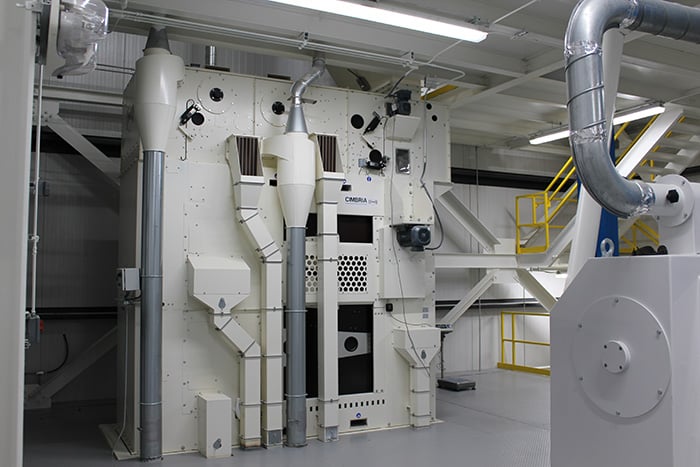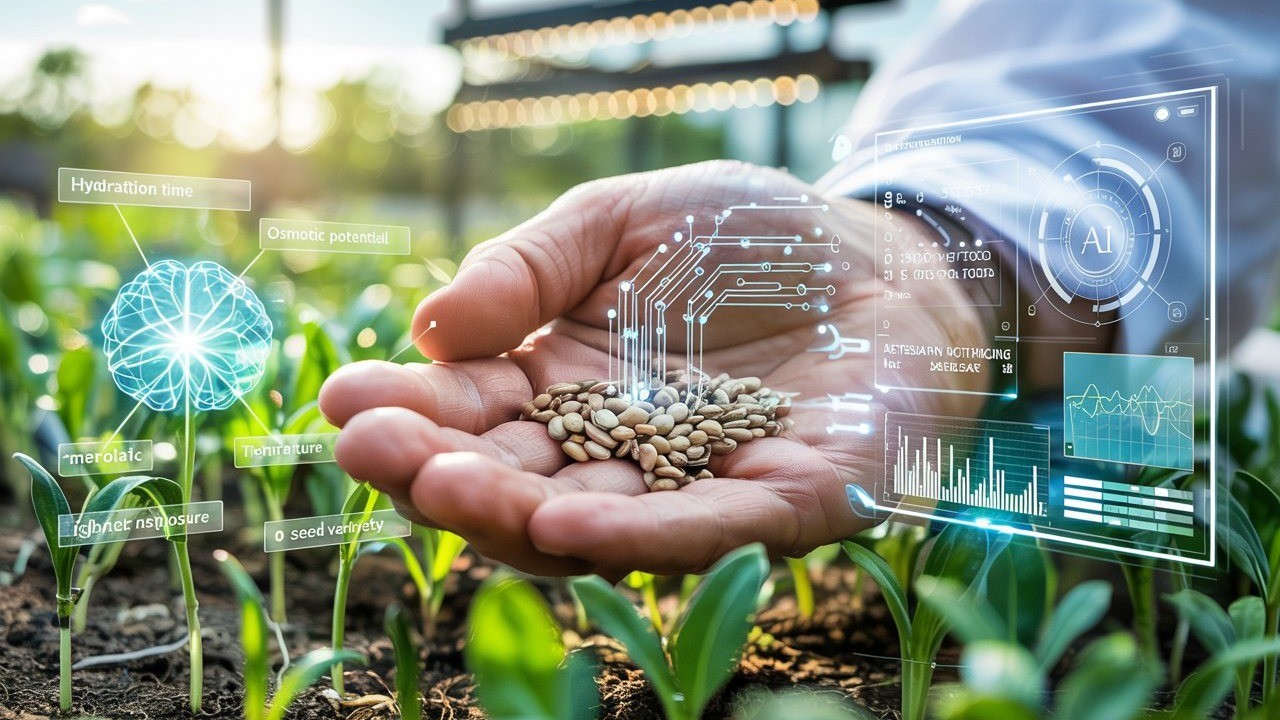
Seed care has always been at the heart of successful farming, but today, modern agriculture demands more than traditional methods. With the rise of advanced technologies, farmers now have access to innovative solutions that ensure stronger crops and sustainable yields. From custom seed cleaning services in USA to AI-powered sorting tools, these advancements are transforming how seeds are prepared, treated, and protected. By adopting modern tools, farmers can achieve higher yields, reduce vulnerability to diseases, and move toward a more sustainable future in agriculture.
The Evolution of Seed Care Technology

From Traditional Seed Care to Modern Practices
For centuries, farmers relied on manual methods such as hand-cleaning, sun-drying, and simple storage practices to protect their seeds. While these methods worked in smaller farming communities, they often left seeds vulnerable to contamination, disease, and low germination rates. Traditional approaches lacked the precision and consistency needed for large-scale farming, especially as global food demand continues to rise.
Shift Toward Mechanization and Automation
The industrialization of agriculture brought significant changes to seed care. The introduction of mechanical seed cleaners and basic grading machines helped improve efficiency and reduce impurities. Over time, these tools evolved into advanced automated systems that use sensors, airflow, and vibration technology to separate high-quality seeds from damaged or unhealthy ones. This shift marked the beginning of modern seed care as we know it today.
Integration of Technology in Seed Processing
In recent years, technological innovations such as AI-driven sorting systems, smart laboratory testing, and precision treatment methods have transformed the seed industry. Farmers now rely on digital monitoring, automated cleaning, and even drone-assisted field inspections to ensure their seeds meet the highest standards. These tools not only save time and labor but also ensure greater accuracy and reliability in seed quality.
Why Innovation Matters for Food Security
Global population growth and climate change are putting enormous pressure on agriculture. Without strong, disease-resistant, and high-yield seeds, farmers face reduced harvests and increased food insecurity. Modern seed care technology ensures that seeds are:
-
Free from contaminants and diseases.
-
Adapted to local soil and climate conditions.
-
Capable of producing uniform, high-quality crops.
By embracing innovation, farmers and seed companies can meet rising food demands while ensuring sustainability for future generations.
The Road Ahead
Seed care will continue to evolve with advancements in biotechnology, nanotechnology, and data-driven farming. These innovations hold the promise of not just improving yields, but also creating resilient crops that can withstand environmental challenges, paving the way for a secure and sustainable food future.
Precision Seed Cleaning Machines

How Advanced Equipment Removes Impurities
Modern precision seed cleaning machines are designed to separate high-quality seeds from unwanted materials such as dust, broken seeds, stones, and plant residues. Unlike traditional hand-cleaning or basic mechanical methods, these machines use a combination of air pressure, vibration, and advanced sieving technology to ensure that only healthy, viable seeds pass through. Some cutting-edge models are even equipped with optical sensors that detect color, shape, and density differences, allowing them to remove defective seeds with incredible accuracy.
Benefits for Seed Quality and Germination Rates
Clean seeds are the foundation of a successful crop. By removing impurities and non-viable seeds, precision machines improve germination rates and reduce the risk of introducing diseases into the soil. Farmers benefit from:
-
Stronger, healthier seedlings that grow uniformly.
-
Reduced spread of pathogens, pests, and weeds.
-
Higher overall productivity, as more seeds successfully sprout and mature.
For seed companies, these machines add value by ensuring that their products meet industry standards for purity and quality, building trust with customers.
Role in Large-Scale Farming Efficiency
In large-scale agricultural operations, precision seed cleaning machines are not just a convenience — they are a necessity. These machines can process massive quantities of seeds in a short time, dramatically reducing labor costs and manual effort. Automated features also minimize human error, ensuring consistency across every batch. By integrating with other seed care technologies, such as grading and treatment systems, they streamline the entire process from harvest to planting.
Supporting Sustainable Agriculture
Beyond efficiency, precision seed cleaning machines contribute to sustainable farming practices. By reducing waste and improving seed viability, they help farmers maximize yields without overusing resources like land, water, or fertilizers. This makes them a crucial tool for meeting global food demands while protecting the environment.
Automated Sorting and Grading Systems

Use of AI and Sensors in Seed Sorting
Modern seed care has taken a leap forward with the introduction of automated sorting and grading systems. These machines rely on advanced technologies such as artificial intelligence (AI), optical sensors, and high-resolution cameras to evaluate each seed in real-time. Instead of depending on manual inspection, the system can detect variations in size, weight, color, and even hidden defects that the human eye might miss. AI algorithms then make instant decisions to separate healthy, high-quality seeds from damaged or low-performing ones.
Grading Seeds for Consistency
Grading is not only about quality but also about consistency. Automated systems categorize seeds into uniform groups based on parameters such as size, weight, and shape. This uniformity ensures that seeds germinate and grow at the same pace, which is critical for efficient field management and maximizing yields. For seed companies, grading adds commercial value by guaranteeing that buyers receive a standardized product.
Ensuring Uniformity and Higher Crop Performance
Uniform seeds result in uniform crops. When seeds are consistent in size and health, they require similar amounts of water, nutrients, and space, which reduces competition and stress within the field. This leads to:
-
Stronger and healthier plant growth.
-
Better pest and disease resistance.
-
Higher overall productivity and profitability.
By ensuring only the best seeds are planted, automated systems help farmers minimize risks and achieve greater reliability in their harvests.
The Role in Modern Agriculture
In large-scale farming operations, automated sorting systems save enormous amounts of time and labor. They allow farmers and seed producers to process massive quantities of seeds with accuracy and speed, something impossible with manual methods. Beyond efficiency, these systems also support sustainable agriculture by reducing waste and ensuring that resources are invested only in high-performing seeds.
Role of Data and AI in Seed Care
Predictive Analytics for Seed Selection
Data has become one of the most powerful tools in modern agriculture, especially when it comes to seed care. Predictive analytics uses historical data, genetic information, and environmental patterns to help farmers choose the best seeds for their specific needs. Instead of relying on trial and error, farmers can now make informed decisions about which seed varieties will perform best under certain conditions. This ensures higher success rates and reduces costly mistakes during planting.
AI-Driven Insights on Soil Compatibility and Climate Resilience
Artificial intelligence (AI) is revolutionizing the way seeds are matched to their growing environments. By analyzing soil health, nutrient levels, and climate patterns, AI tools provide tailored recommendations on which seeds are most likely to thrive. For example, in drought-prone regions, AI can suggest heat-tolerant or water-efficient seed varieties. In colder climates, it may recommend seeds with frost resistance. This precision not only boosts productivity but also improves resilience against unpredictable climate challenges.
Reducing Waste and Maximizing Yield
One of the greatest challenges in agriculture is reducing waste — both in terms of seed loss and resource use. AI-powered systems help farmers optimize planting density, fertilizer application, and irrigation schedules. By ensuring that every seed has the best possible chance to grow, farmers maximize yield while minimizing wasted inputs. This data-driven approach leads to:
-
Higher crop efficiency per acre.
-
Lower costs in seed, water, and fertilizer usage.
-
Sustainable farming with reduced environmental impact.
Shaping the Future of Smart Agriculture
The integration of data and AI into seed care is laying the foundation for fully “smart farms.” These technologies allow farmers to adapt quickly to changing conditions, reduce risks, and ensure long-term food security. As AI continues to evolve, it will play an even larger role in developing seed varieties that are more adaptable, disease-resistant, and capable of meeting the demands of a growing global population.
Conclusion
Modern tools are revolutionizing the way seeds are cleaned, tested, treated, and monitored, laying the foundation for a new era in agriculture. From precision cleaning machines and automated sorting systems to AI-driven analytics, drones, and IoT sensors, these innovations are ensuring that farmers can achieve higher yields with greater efficiency and reliability. Adopting these technologies is no longer optional — it is essential for farmers who want to stay competitive and secure their harvests in an increasingly unpredictable climate. By investing in advanced seed care solutions, farmers not only improve their chances of success but also contribute to building a more sustainable food system.
FAQs
1. What are the most effective modern tools used in seed care?
Modern tools include precision seed cleaning machines, automated sorting systems, seed treatment technologies, smart laboratory testing, drones, IoT sensors, and AI-driven analytics.
2. How do precision seed cleaning machines improve crop performance?
They remove impurities, diseased seeds, and contaminants, ensuring higher germination rates and healthier, more uniform crops.
3. Why is seed certification important for farmers?
Certification guarantees seed purity, quality, and compliance with agricultural standards, reducing risks of crop failure and boosting farmer confidence.
4. How can AI and data help in selecting the right seeds?
AI uses predictive analytics and soil-climate data to recommend seed varieties that are more resilient, resource-efficient, and suitable for specific conditions.
5. What role do drones and IoT devices play in seed monitoring?
Drones monitor seed germination and field conditions, while IoT sensors track soil moisture and nutrients, helping farmers make precise, data-driven decisions.

